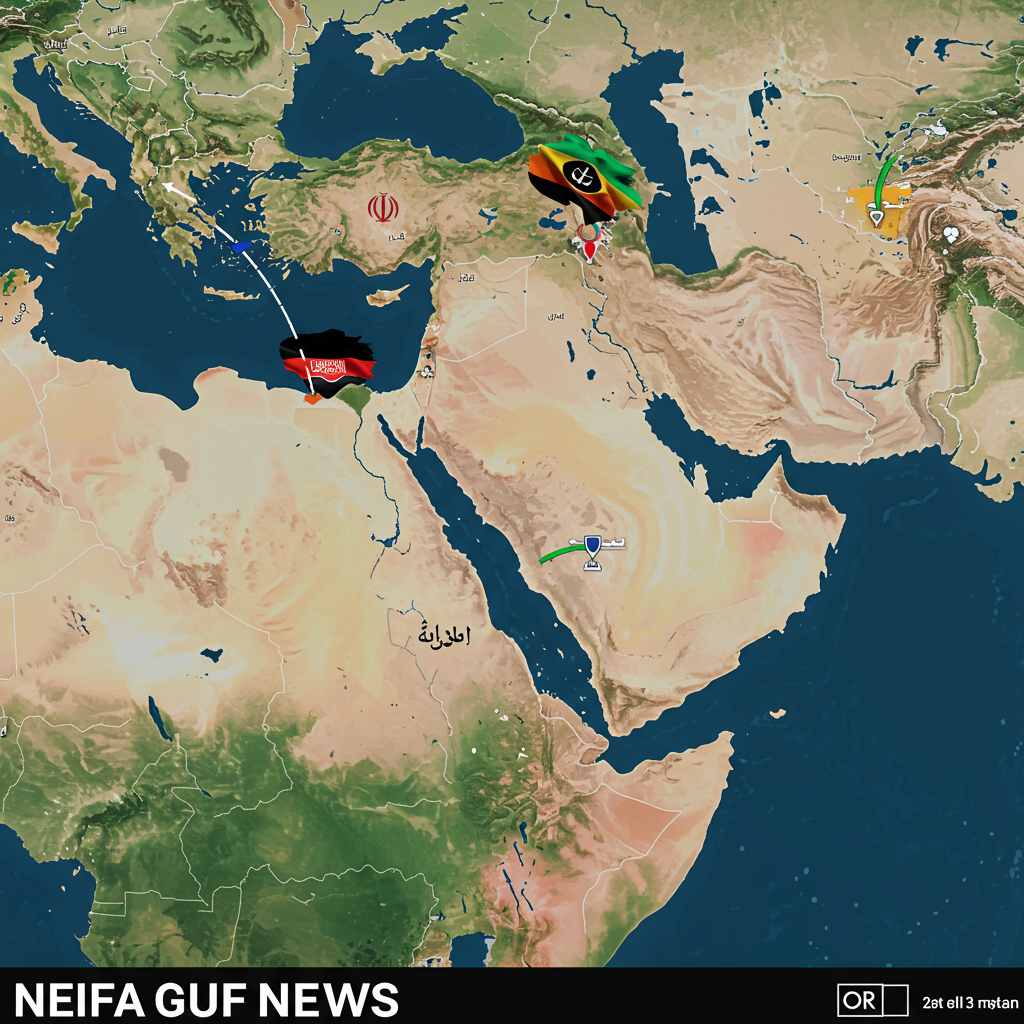The United Kingdom is poised to make a monumental shift in its Middle East policy, signaling its intention to formally recognize a Palestinian state. This potential move, announced by Prime Minister Sir Keir Starmer, is not merely symbolic; it reflects escalating international pressure and a re-evaluation of Britain’s historical role in the region. Understanding the multifaceted implications of such recognition is crucial, as it navigates a complex geopolitical landscape shaped by decades of conflict and unresolved territorial disputes. This comprehensive guide delves into what Palestinian statehood truly signifies, why the UK is acting now, and its potential ripple effects across the globe.
Understanding Palestinian Statehood: A Quasi-State Defined
Palestine occupies a unique and often contradictory position on the global stage. It is a “quasi-state”—a political entity that enjoys substantial international recognition yet lacks the fundamental attributes typically associated with full sovereignty. Currently, 147 of the United Nations’ 193 member states, representing a significant majority, acknowledge Palestine as a state. This widespread diplomatic support allows Palestine to maintain foreign missions and participate in international forums and sporting events, including the Olympics.
However, its status remains deeply complex. Due to the ongoing conflict with Israel and the latter’s military occupation, Palestine lacks internationally agreed-upon boundaries, a defined capital city, and its own standing army. The Palestinian Authority, established in the 1990s, controls parts of the West Bank but does not have full command over its territory or populace. Gaza, also under Israeli occupation and currently experiencing devastating conflict, further complicates any notion of unified Palestinian control. Therefore, while formal recognition by a nation like the UK carries immense moral and political weight, its immediate tangible impact on the ground remains limited. It is largely a diplomatic statement, signaling solidarity and a commitment to future self-determination.
The UK’s Pivotal Shift: Why Now?
For years, successive British governments maintained that recognition of a Palestinian state would only occur as part of a comprehensive peace process, ideally in concert with key Western allies and at a moment of “maximum impact.” This stance has now dramatically evolved. The catalyst for the current UK government’s change of heart is a confluence of urgent factors.
The dire humanitarian crisis unfolding in Gaza, characterized by “creeping starvation” and widespread suffering, has generated immense public outcry and international condemnation. This has fueled significant shifts in British public opinion and led to deafening pressure from within Parliament, including from senior cabinet ministers. Health Secretary Wes Streeting notably urged recognition “while there is still a state of Palestine left to recognise.”
Furthermore, the UK’s shift aligns with growing international momentum. French President Emmanuel Macron’s recent announcement of his country’s intent to recognize Palestine by September has set a precedent, particularly as France became the first G7 nation to commit to such a step. Sir Keir Starmer’s conditional pledge is framed as an attempt to leverage this global momentum, aiming to create a “moment of maximum impact” to salvage the increasingly endangered two-state solution. This strategic timing reflects a broader desire among Western allies to exert pressure on all parties to de-escalate and commit to a durable peace process.
Conditions for Recognition: A Diplomatic Ultimatum
The UK’s commitment to recognize Palestine is not unconditional. Prime Minister Starmer has articulated specific demands that Israel must meet to avert the UK’s formal recognition by September. These conditions include:
Ceasefire: Agreement to an immediate and sustained ceasefire in Gaza.
Humanitarian Aid: Taking substantive steps to alleviate the humanitarian catastrophe, including allowing unrestricted UN aid into Gaza.
No West Bank Annexation: Committing to refrain from annexing territory in the West Bank.
Two-State Solution: A renewed and genuine commitment to a peace process that results in a viable two-state solution.
Simultaneously, demands persist for Hamas: the immediate release of all hostages, commitment to an immediate ceasefire with Israel, disarmament, and a pledge to play no part in the future governance of Gaza. Given Israeli Prime Minister Benjamin Netanyahu’s consistent rejection of a Palestinian state, the UK government is acutely aware that these conditions are unlikely to be met in the immediate future, making British recognition by September a near certainty.
The Elusive Two-State Solution: A Historical Perspective
The “two-state solution” is the bedrock of international peace efforts in the Israeli-Palestinian conflict. It envisions the creation of an independent Palestinian state existing peacefully alongside Israel, broadly along the lines that existed prior to the 1967 Arab-Israeli War. This would include the West Bank (with East Jerusalem as its capital) and the Gaza Strip.
Britain carries a particular historical burden in this context. The 1917 Balfour Declaration, signed by then-Foreign Secretary Arthur Balfour, expressed British support for “the establishment in Palestine of a national home for the Jewish people.” Crucially, this declaration came with a solemn promise: “that nothing shall be done which may prejudice the civil and religious rights of existing non-Jewish communities in Palestine.” This promise, often interpreted as referring to the Palestinian Arab population, has been largely unfulfilled.
Despite decades of international efforts, the creation of a parallel Palestinian state has repeatedly foundered. A major impediment to the two-state solution is Israel’s continued expansion of settlements in the West Bank and East Jerusalem. These settlements, home to approximately 600,000 Israelis, are considered illegal under international law and have significantly fragmented Palestinian territory, turning the two-state concept into what many view as an “empty slogan.”
Global Perspectives on Palestinian Statehood
The UK’s stance places it firmly within a growing international consensus, yet highlights a significant divergence with one key ally. As a “permanent observer state” at the UN, Palestine enjoys participation rights but no voting power. With the UK and France now aligning, four of the five permanent members of the UN Security Council—China, Russia, France, and the UK—will recognize a Palestinian state.
This leaves the United States, Israel’s staunchest ally, increasingly isolated. While several US presidents have voiced support for an eventual Palestinian state, the US has stopped short of formal recognition, acknowledging only the Palestinian Authority. Administrations, particularly under Donald Trump, have leaned heavily in favor of Israel. Many analysts believe that a lasting peace process leading to a two-state solution remains “impossible” without the active backing of the United States. Dr. Julie Norman, an associate professor at UCL, emphasizes that moves by major powers like the UK and France “starts isolating the US as the main major power backing Israel to the exclusion of Palestine,” demonstrating a broader global unity for Palestinian self-determination.
Other nations hold diverse views:
Germany: Supports a two-state solution but will not recognize Palestine “for now,” prioritizing a Gaza ceasefire and aid.
Canada & Australia: Express support for a two-state solution but have not yet recognized Palestine.
Italy: Requires any recognition of Palestine to include recognition of Israel.
Spain: Having already recognized Palestine, welcomes France’s move, urging collective action to protect the two-state solution.
- Saudi Arabia: Commends France’s “historic decision,” calling for similar steps from other countries.
- www.bbc.com
- www.theguardian.com
- www.aljazeera.com
- news.sky.com
- www.independent.co.uk
Practical Impacts and Future Outlook
While symbolic, the UK’s recognition would carry several practical implications. It would enable the establishment of full diplomatic relations, meaning a Palestinian ambassador could be formally based in London, and potentially a British ambassador in Palestine. This formalizes a relationship that has long existed through the Palestinian Authority. However, experts like Sir Vincent Fean, a former British consul general to Jerusalem, clarify that UK recognition of “states,” not “governments,” means the proscription of Hamas as a terrorist group would remain unchanged. Moreover, such recognition would not immediately alter the UK’s refugee system or visa regime, nor would it fundamentally change the complex issue of the Palestinian “right of return,” which requires negotiation with Israel.
The broader impact lies in its diplomatic leverage. By aligning with a majority of UN members, the UK demonstrates a unified European commitment to the two-state solution, potentially preventing its complete erosion. It sends a clear message to Israel regarding the international community’s expectations for a future peace. However, the UK’s ability to “bend others to its will” is not what it was in 1917. The real test will be whether this diplomatic pressure can translate into tangible changes on the ground, ultimately fostering a secure future for both Israelis and Palestinians.
Frequently Asked Questions
What does official recognition of a Palestinian state actually change on the ground?
Formal recognition by a nation like the UK is primarily a strong moral and political statement, signaling support for Palestinian self-determination and statehood. While it enables full diplomatic relations, such as establishing an embassy, it does not immediately resolve complex practical issues like agreed-upon borders, the location of a capital, or control over territory. Due to Israel’s ongoing occupation, the Palestinian Authority does not exercise full control over its land or people, meaning the day-to-day reality on the ground would likely remain largely unchanged in the short term.
Which major countries currently recognize a Palestinian state, and where does the US stand?
Currently, 147 of the 193 UN member states recognize Palestine, including major global powers like China, Russia, and India. Many European countries, such as Spain, Ireland, Norway, and most recently France, have also extended recognition. If the UK proceeds, four of the five permanent members of the UN Security Council will recognize Palestine. The United States, Israel’s staunchest ally, remains a notable exception. While several US presidents have supported the eventual creation of a Palestinian state, the US has not formally recognized it, acknowledging only the Palestinian Authority.
Why is the UK considering recognizing Palestine now, and what are the conditions for this move?
The UK’s shift is driven by escalating humanitarian concerns in Gaza, mounting domestic and international pressure, and a desire to create “maximum impact” for the two-state solution. Prime Minister Sir Keir Starmer has set clear conditions for Israel to avert this recognition: agreeing to a ceasefire in Gaza, taking substantive steps to allow unrestricted humanitarian aid, committing not to annex the West Bank, and genuinely reviving the prospect of a two-state solution. Similar demands are also placed on Hamas, including the release of hostages and disarmament.
In conclusion, the UK’s imminent decision to recognize a Palestinian state marks a significant moment in international diplomacy. While largely symbolic in its immediate practical effects, it represents a powerful moral commitment and a strategic attempt to revive a political process that many feared was dead. This move intensifies pressure on Israel and aligns the UK with a growing global consensus, further isolating the United States on this critical issue. The true impact will ultimately depend on whether this diplomatic leverage can translate into concrete steps towards a lasting and just peace for both Israelis and Palestinians.


